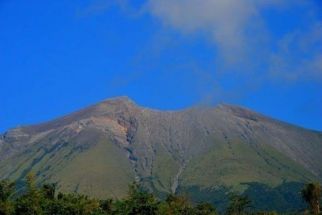Vizcaya mining project suspended
October 22, 2001 | 12:00am
SANTIAGO CITY — The Department of Environment and Natural Resources (DENR) suspended last week the permit of an Australian-owned mining firm to extract gold and copper in a mountain village here amid protests from residents and church officials.
Environment and Natural Resources Secretary Heherson Alvarez said Climax-Arimco Mining Corp. (CAMC) has failed to convince residents of remote Barangay Didipio in Kasibu town of the social acceptability of its mining project.
Alvarez told Paul Joyce, CAMC country manager, that his company failed to initiate social acceptability measures, which was apparent in the continuing opposition to its mining project.
"You have not been able to resolve the residents’ petition seeking a plebiscite on a local initiative to withdraw the memorandum of agreement (MOA) initially contracted between your company and the concerned village council," Alvarez said in his Oct. 11 letter to Joyce.
The mining firm has referred to the MOA as proof that the barangay council was supportive of its mining operations. But the residents denied this, insisting that barangay officials did not consult them.
"The people have spoken. Local officials have spoken. It’s good the secretary heeded (their sentiments)," said Bishop Ramon Villena of the Bayombong diocese.
Villena, during a recent meeting of the regional development council in Bayombong, expressed fears that the villagers might fight back if the mining firm pushes through with its project.
"We will fight to the death against mining in Kasibu, whether it is by Climax-Arimco, by Red Earth Corp. or any other mining firm that comes to steal our land," Kasibu resident Mariano Maddela said.
The CAMC was the first to be granted a financial and technical assistance agreement immediately after the passage of the controversial Mining Act of 1995 during the Ramos administration.
Environment and Natural Resources Secretary Heherson Alvarez said Climax-Arimco Mining Corp. (CAMC) has failed to convince residents of remote Barangay Didipio in Kasibu town of the social acceptability of its mining project.
Alvarez told Paul Joyce, CAMC country manager, that his company failed to initiate social acceptability measures, which was apparent in the continuing opposition to its mining project.
"You have not been able to resolve the residents’ petition seeking a plebiscite on a local initiative to withdraw the memorandum of agreement (MOA) initially contracted between your company and the concerned village council," Alvarez said in his Oct. 11 letter to Joyce.
The mining firm has referred to the MOA as proof that the barangay council was supportive of its mining operations. But the residents denied this, insisting that barangay officials did not consult them.
"The people have spoken. Local officials have spoken. It’s good the secretary heeded (their sentiments)," said Bishop Ramon Villena of the Bayombong diocese.
Villena, during a recent meeting of the regional development council in Bayombong, expressed fears that the villagers might fight back if the mining firm pushes through with its project.
"We will fight to the death against mining in Kasibu, whether it is by Climax-Arimco, by Red Earth Corp. or any other mining firm that comes to steal our land," Kasibu resident Mariano Maddela said.
The CAMC was the first to be granted a financial and technical assistance agreement immediately after the passage of the controversial Mining Act of 1995 during the Ramos administration.
BrandSpace Articles
<
>
- Latest
- Trending
Trending
Latest
Trending
Latest
Recommended
























